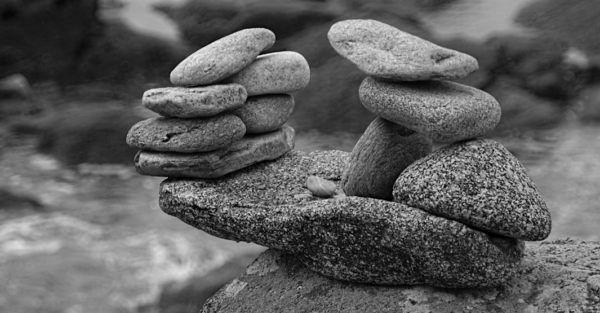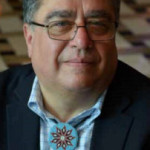
- Details
- By Levi Rickert
In traditional American Indian teachings, our elders instruct us to find balance in life so that we may live in harmony. They teach us we should find balance between our natural environment and the fulfillment of our sustainable needs—so that we can leave enough behind for the next seven generations. Our elders teach us that we should seek balance between pragmatism and spirituality.
I have found myself trying to discern between what is true and what is false. In the internet age, one can find a whole lot of conjecture and speculation about where the deadly virus originated. While finding the origin is extremely important in the long-term, sadly, in the short-term the situation has led to loss of lives. In Indian Country, the Navajo Nation has sustained the worst loss of lives with a death toll from the virus at 73 as of Saturday night.
In this pandemic, it is obvious that finding the right balance is important to the safety of our communities, both physically and emotionally. I am convinced it is not in Native people’s DNA to live in isolation. I am not one who enjoys the confinement of isolation. We all want to be able to live our lives again and travel freely again.
 Levi Rickert
Levi Rickert
Historically, our ancestors lived and even traveled together as communities as they uprooted daily life from one area to move on to another locale. They existed on the premise that what was good for one should be good for all. In other words, they lived and practiced the concept of community rights over individual rights.
Even now, during the pandemic, decisions made by tribal leaders have been made for the good of the total community in mind.
In this pandemic, there is the challenge to balance the huge social issue of public health with the concern for economic impact.
Certainly, tribes that operate casinos have voluntarily closed down their hotels, entertainment centers and gaming floors out of concern for the well-being of their tribal communities, employees, neighbors and patrons. The impact of the closures has been great. As the California Indian Gaming Association told Native News Online in late March, the voluntary shut-down of tribal gaming facilities was the responsible decision to make. However, the decision to close resulted in many tribal governments’ revenue streams being reduced to near zero overnight. These losses come with an enormous cost to tribal citizens as well as the local communities where they are located.
The true severity of the closure of the casinos is not yet known in terms of economic loss and impact on tribal programs which the casinos fund. Tribes, while being sovereign governments, do not have the ability to charge taxes. Casino revenues fill that gap.
Countless other tribal businesses have been hurt because of the pandemic, including tribally owned and Native-owned businesses.
Finding balance in the midst of the troubling pandemic days is difficult. However, the pandemic has allowed us unique opportunities to grow internally as we discover those things that really matter and those that don’t. It has afforded us the opportunity to discover those people who really matter in the larger scheme of life. And, those who don’t.
Finding balance in this pandemic is important so that we can ultimately live in harmony.
Levi Rickert (Prairie Band Potawatomi Nation) is the publisher/editor of Native News Online.
More Stories Like This
Native News Weekly (August 25, 2024): D.C. BriefsUS Presidents in Their Own Words Concerning American Indians
Two Murdered on Colville Indian Reservation
NDAA passes House; Lumbee Fairness Act Advances
NFL, Vikings to Host Native All-American Game, Youth Flag Clinic
Help us defend tribal sovereignty.
At Native News Online, our mission is rooted in telling the stories that strengthen sovereignty and uplift Indigenous voices — not just at year’s end, but every single day.
Because of your generosity last year, we were able to keep our reporters on the ground in tribal communities, at national gatherings and in the halls of Congress — covering the issues that matter most to Indian Country: sovereignty, culture, education, health and economic opportunity.
That support sustained us through a tough year in 2025. Now, as we look to the year ahead, we need your help right now to ensure warrior journalism remains strong — reporting that defends tribal sovereignty, amplifies Native truth, and holds power accountable.
 The stakes couldn't be higher. Your support keeps Native voices heard, Native stories told and Native sovereignty defended.
The stakes couldn't be higher. Your support keeps Native voices heard, Native stories told and Native sovereignty defended.
Stand with Warrior Journalism today.
Levi Rickert (Potawatomi), Editor & Publisher

